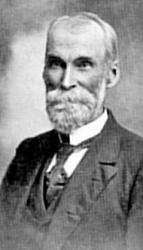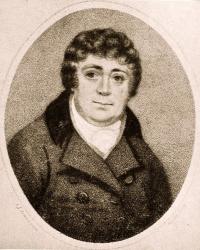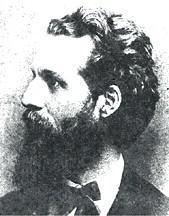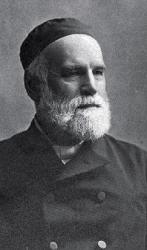Planning worship?
Check out our sister site, ZeteoSearch.org,
for 20+ additional resources related to your search.
- |
User Links
Person Results
‹ Return to hymnal






Export as CSV
Walter Kittredge

1834 - 1905 Hymnal Number: 195 Arranger of "[Give me the wings of faith to rise]" in Augsburg Songs for Sunday Schools and other services Born: October 8, 1834, Reed’s Ferry, Merrimack, New Hampshire.
Died: July 8, 1905, Reed’s Ferry, Merrimack, New Hampshire.
Buried: Last Rest Cemetery, Merrimack, New Hampshire.
A popular secular musician, Kittredge wrote over 500 songs and ballads, many dealing with the American civil war, including "The War Will Soon Be Over," "When They Come Marching Home," "Tenting on the Old Campground."
--www.hymntime.com/tch/
Walter Kittredge
William Bengo Collyer

1782 - 1854 Person Name: W. B. Collyer Hymnal Number: 72 Composer of "[Morning breaks upon the tomb]" in Augsburg Songs for Sunday Schools and other services William Bengo Collyer was born at Blackheath Hill, in 1782, and studied at Homerton College. Before completing his twentieth year he became pastor of a Congregational society at Peckham, continuing in that position through his life. He died in 1854. He received the degree of D.D. from the University of Edinburgh in 1808. For many years he was one of the most popular Dissenting ministers in London. He published many hymns and some works on theology.
--Annotations of the Hymnal, Charles Hutchins, M.A. 1872.
===================
Collyer, William Bengo, D.D., born at Blackheath, April 14, 1782, educated at Homerton College, where, when 16 years old, he was enrolled as a student for the ministry. At 20 he began his ministry at Peckham on Dec. 17, 1801 ordained pastor of a small church consisting of ten communicants. From 1814 to 1826 he was also pastor of a Church meeting in Salters' Hall. On June 17, 1817, a new chapel was opened for him at Peckham. There, from the time of his settlement in 1801, he laboured with great success and honour until Dec. 11, 1853, on which clay he preached for the last time. He died Jan. 8, 1854.
Dr. Collyer was eminent in his day as an eloquent Evangelical preacher, when formalism in worship, and Arianism in doctrine, prevailed. He was a man of amiable disposition, polished manners, and Christian courtesy; popular with rich and poor alike. He was the author of a series of lectures on Divine Revelation, in seven volumes: Scripture Facts, Prophecies, Miracles, Parables, Doctrines, Duties, Comparisons. Dr. Collyer compiled a hymn-book with the title, Hymns partly collected and partly original, designed as a supplement to Dr. Watts's Psalms and Hymns, 1812. It was intended at first for the use of his own congregation only, and was to include many hymns composed by himself, to be sung after sermons which he had preached to them, but he was led to alter the plan. It comprises 979 hymns, 6 choruses, and 4 doxologics, arranged in groups according to their authors, and not subjects. Of this number 57 were written by Dr. Collyer, and are for the most part short descriptive or didactic poems, religious or moral essays in verse, and not hymns addressed to the Creator and Redeemer. Some of them are devoid of Christian truth, and are poems of nature or of sentiment. Some of them were written during the hard and sorrowful times of the wars of Bonaparte, and relate to famine and national calamity. Several were prepared for the public meetings of missionary and benevolent societies, which had their origin in his time. He also published Services suited to the Solemnization of Matrimony, Baptism, &c, 1837, which contained 89 of his hymns, &c.; Hymns for Israel, a Tribute of Love for God's Ancient People, 1848 (41 hymns). In Dr. Leifchild's Original Hymns, 1843, there are also 39 of his compositions. Many of his pieces appeared in the Evangelical Magazine, and were also appended to his numerous published Sermons. A few of his hymns are still in common use, including. "Another fleeting day is gone"; "Assembled at Thy great command"; "O Jesu, in this solemn hour"; "O Thou, the helpless orphan's hope"; "Return, O wanderer, return," and the fine cento, "Great God, what do I see and hear."
[Rev. F. J. Faulding, D.D.]
--John Julian, Dictionary of Hymnology (1907)
======================
Collyer, William Bengo, p. 243, ii. The following hymns by Dr. Collyer are also in common use:—
1. Another fleeting day is gone. Evening. (1812.)
2. 0 Jesus, in this solemn hour. Reception of Church Officers. (1842.)
3. O Thou, the helpless orphan's hope. On Behalf of Orphans. In the Evangelical Magazine, 1808, p. 48.
4. See the clouds upon the mountain. Sunday Morning. (1842.)
5. Soft be the gently breathing notes. Praise to the Redeemer. (1812.)
6. Softly the shade of evening falls. Evening. (1812.) From this, “Soon shall a darker night descend" is taken.
7. Thou Prince of glory slain for me. Good Friday. (1812.)
The date 1812 is that of his Collection, and 1842 of Leifchild's Original Hymns.
--John Julian, Dictionary of Hymnology, Appendix, Part II (1907)
William Bengo Collyer
W. O. Perkins
1831 - 1902 Hymnal Number: 179 Composer of "[A little while longer to labor]" in Augsburg Songs for Sunday Schools and other services William Oscar Perkins DMus USA 1831-1902. Born at Stockbridge, VT, older brother of Henry, and the son of musical parents (both singers) he was trained musically, primarly by his father. He attended the Kimball Union Academy, Meriden, NH, then studied music in Boston, MA, London, England, and Milan, Italy. He settled in Boston, MA, and founded a music academy, where he taught music. He published a number of hymnals in Boston, then moved to New York City. He was awarded an honorary doctorate of music degree in 1879 by Hamilton College. He wrote 19 books (1861-1897), including a history of the war in South Africa (1900). He published 33 hymnals 1859-1882). In 1870 he published ”The Chorister”, his 400-page music collection for choirs, schools, and conventions. He was an author, composer, editor, compiler, and originator. He died at Boston, MA.
John Perry
W. O. Perkins
W. L. Remsberg
Person Name: Rev. W. L. R. Hymnal Number: 214 Arranger of "[Hear the temperance call, freemen]" in Augsburg Songs for Sunday Schools and other services
W. L. Remsberg
Samuel Arnold

1740 - 1802 Person Name: Dr. S. Arnold Hymnal Number: C15b Composer of "[My soul doth magnify the Lord]" in Augsburg Songs for Sunday Schools and other services Dr. Samuel Arnold, an English musician and composer; born in London, Aug. 10, 1739; composed for the theatre, the church, and also oratorio music; succeeded Dr. Nares as organist; died at Westminster, Oct. 22, 1802.
A Dictionary of Musical Information by John W. Moore, Boston: Oliver, Ditson & Company, 1876
Samuel Arnold
Alexander Clark

1835 - 1879 Person Name: Alexander Clark, D. D. Hymnal Number: 156 Author of "Bless Me Now" in Augsburg Songs for Sunday Schools and other services Clark, Alexander, D.D., born March 10, 1835, died July 6, 1879. Dr. Clark was for many years a Minister of the American Methodist Episcopal Church, and the editor of the Methodist Recorder, published at Pittsburgh. Two of his hymns:—
1. Heavenly Father, bless me now. Lent.
2. Make room for Jesus. Lent.
are given in I. D. Sankey's Sacred Songs & Solos.
--John Julian, Dictionary of Hymnology (1907)
=========================
Clark, Alexander, D.D. (March 10, 1835--July 6, 1879). Of Scottish descent, he was born in Jefferson County, Ohio, and received his education in the common schools, guided by a very competent father. After teaching in the public schools of Ohio for some years, he founded and edited Schoolday Visitor, a young people's journal which he published by himself in Knoxville, Ohio. It reached a circulation of more than 30,000 and eventually was merged with St. Nicholas, a well-known magazine for youth.
Originally a Presbyterian, he joined the Methodist Protestant Church and received his preaching license in 1862. For four years, from 1866, he served the First Methodist Protestant Church, Pittsburgh, and then became editor of the Methodist Recorder and the Sunday School papers of his church, retaining that position until his death. Chairman of the Committee which compiled the Voice of Praise, 1872, he was largely responsible for including in it much new hymnic material. He was the author of five hymns which were included in the book. His "Heavenly Father, bless me now," originally in six four-line stanzas, continued in the series of Methodist Protestant hymnals through that of 1901. Stanzas 1, 2, 5, 6, are in 0/1935. [note: up to 1966 Methodist Hymnal.]
He was the recipient of honorary degrees from Mt. Union College, Otterbein University, and Ohio Wesleyan University. While on a lecture tour in Georgia, he became ill at Atlanta and was taken to the Executive Mansion by the then Governor Colquitt, where he died after three weeks' severe suffering. The following glowing tribute to Dr. Clark by Colonel Robert G. Ingersoll, nationally known atheist writer and lecturer of the late nineteenth century was published in the Methodist Recorder, July 26, 1879:
"Upon the grave of Rev. Alexander Clark I wish to place one flower. Utterly destitute of cold dogmatic pride that often passes for the love of God, without the arrogance of the 'elect'--simple, free, and kind--this earnest man made me his friend by being mine. I forgot that he was a Christian, and he seemed to forget that I was not, while each remembered that the other was a man.
Frank, candid and sincere, he practiced what he preached, and looked with the holy eyes of charity upon the failings and mistakes of men. He believed in the power of kindness, and spurned with divine sympathy the hideous gulf that separates the fallen from the pure. Giving freely to others the rights that he claimed for himself, it never occurred to him that his God hated a brave and honest unbeliever. He remembered that even an infidel has rights that love respects; that hatred has no saving power, and that in order to be a Christian it is not necessary to become less of a man. He knew that no one can be maligned into kindness; that epithets cannot convince; that curses are not arguments, and the finger of scorn never points toward heaven. With the generosity of an honest man, he accorded to all the fullest liberty of thought, knowing, as he did, that in the realm of mind a chain is but a curse.
He sympathies were not confined within the prison of a creed, but ran out and over the walls like vines, hiding the cruel rocks and rusted bars with leaf and flower. He could not echo with his heart the fiendish sentence of eternal fire. In spite of book and creed, he read 'between the lines' the words of tenderness and love, with promises for all the world. Above, beyond the dogmas of his church--humane even to the verge of heresy--causing none to doubt the love of God because he failed to hate his unbelieving fellow-men--he labored for the welfare of mankind, and to his work gave up his life with all his heart."
An intimate friend of William Cullen Bryant and other well-known authors, he was considered an exceptionally fine lecturer and his work as editor and author was highly regarded. Among his published works are:
The Old Log Schoolhouse, 1864
Working Christianity, or, the Gospel in the Trades, 1878.
--Robert G. McCutchan, DNAH Archives
Alexander Clark
George Lansing Taylor

1835 - 1903 Person Name: Rev. George Lansing Taylor, D. D. Hymnal Number: 207 Author of "To-day we Come with Singing" in Augsburg Songs for Sunday Schools and other services Taylor, George Lansing, D.D., born at Skaneateles, N.Y., Feb. 13, 1835, graduated at Columbia College, 1861, D.D. from Syracuse, 1876. Entered the Methodist Episcopal Ministry in 1862. His hymn, "Dare to do right! dare to be true" (Christian Courage), appeared anonymously in W. B. Bradbury's Golden Censer, 1864; and Bradbury's Clarion, 1867, as by "Rev. Geo. Lansing Taylor." In the Sunday School Hymnary , 1905 [Rev. James Mearns, M.A.]
--John Julian, Dictionary of Hymnology, New Supplement (1907)
============================
Taylor, George Lansing, D.D. (February 13, 1835-- ). Dr. Taylor spent two years at Ohio Wesleyan University before entering Columbia University. While a student at Columbia he was co-editor of the Christian Advocate and Journal and of The American Monthly. He preached for a number of years at various points in New England.
--Robert G. McCutchan, DNAH Archives
George Lansing Taylor
Mary E. Kail

1828 - 1890 Hymnal Number: 212 Author of "Tarry not Long at the Wine" in Augsburg Songs for Sunday Schools and other services Mary Elizabeth Harper Kail, Circa 1828-1890
Born: 1827 or 1828, Washington, DC.
Died: January 28, 1890, Washington, DC, or Ohio.
Daughter of Andrew Harper and Mary McDermott-Roe (daughter of Cornelius McDermott-Roe, a laborer who worked for George Washington). Mary’s father died young, possibly of malaria, while Mary and her sister Virginia were children. Mary and Virginia moved together to Carroll County, Ohio, and in 1843 Mary married Gabriel Kail (1814-88). By 1878, Mary was editor of the Connotton Valley Times in Carroll County. In the late 1880s, Mary was a clerk for the United States Treasury Department; she lost that job in September 1885 due to a change in administration. Her works include:
Crown Our Heroes, and Other Poems, 1887
--www.hymntime.com/tch/
Mary E. Kail
Karl Reden
Hymnal Number: 30 Composer of "[This was the royal gift to men]" in Augsburg Songs for Sunday Schools and other services See Converse, Charles C. (Charles Crozat), 1832-1918
Karl Reden
Julia W. Sampson
Person Name: Miss J. W. Sampson Hymnal Number: 16 Composer of "[Oh, the Sabbath morning, beautiful and bright]" in Augsburg Songs for Sunday Schools and other services [See Julia Sampson Haskell]
Julia W. Sampson


 My Starred Hymns
My Starred Hymns


